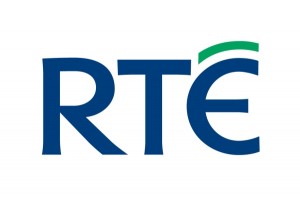 This is a follow up to a previous post:
This is a follow up to a previous post:
(Source: RTÉ)
RTÉ is postponing the closure of its long wave radio transmitter, the Managing Director of RTÉ Radio has told the Joint Committee on Transport and Communications.
Jim Jennings said what was evident was that more time was needed to engage with groups affected.
The closure has been postponed to 19 January 2015.
RTÉ had previously announced that it would be ceasing its service from the Clarkstown long wave transmitter on 27 October and migrating its Radio One service to digital platforms.
Mr Jennings said the decision to cease any RTÉ public service is not something that RTÉ takes lightly or without serious consideration.
He said: “We know that such decisions affect audiences who enjoy and rely on RTÉ’s services.
“However, we also know that the public expect us to manage our operations and services efficiently and evolve our services as technology changes and audiences adapt.”
“In balancing these broad considerations we have come to the decision that now is the right time to cease our long wave Radio One service after ten years on air.”
Continue reading on the RTÉ website.
In North America, RTÉ longwave is a tough DX. Still, during the quiet conditions of December, I may just try to catch them one evening.
Though the RTÉ website has already removed the long wave frequency from their Ways To Listen page, you can find them on 252 kHz.

It’s patently obvious the wrong people are in positions of status at radio stations , such as at RTE in Dublin , to judge for themselves by personal experience if closing in Eire’s case (and UK) if closing the only radio station of an entire nation heard outside it’s borders . RTE Radio 1 is receivable in the UK and France regularly and in Portugal,Spain and Belgium with decent directional aerials/antennas . No VHF/FM and certainly no digital transmissions from the Irish Republic are receivable further than the west coast of Wales and Scotland so without the Clarkstown Long Wave transmission the news of Ireland from Ireland the views of their people and what the Diál Éireann (Irish Lower House of Parliament) are up to . The BBC has limited considerably its short wave broadcasting too – but not totally. Only a none technical mind can decide to prevent the considerable Irish and pr0-Irish people of UK to listen on their normal radios to what to many is the mother country on 252 kHz and a welcome alternative to BBC Radio 4 on 198 kHz. It seems the one thing not done is ask the listener what he/she wants do we want to rely on cable connection or satellite dish or Internet ISP streams all needing fixed connections and/or subscriptions rather than a cheap handy transistor radio or even a valve wireless set, but those in the board – rooms with absolutely no technical knowledge think the best way to make a radio station feasable is in effect close it down !! Like the shop keeper asked why he doesn’t stock a particular product who says it doesn’t sell ………